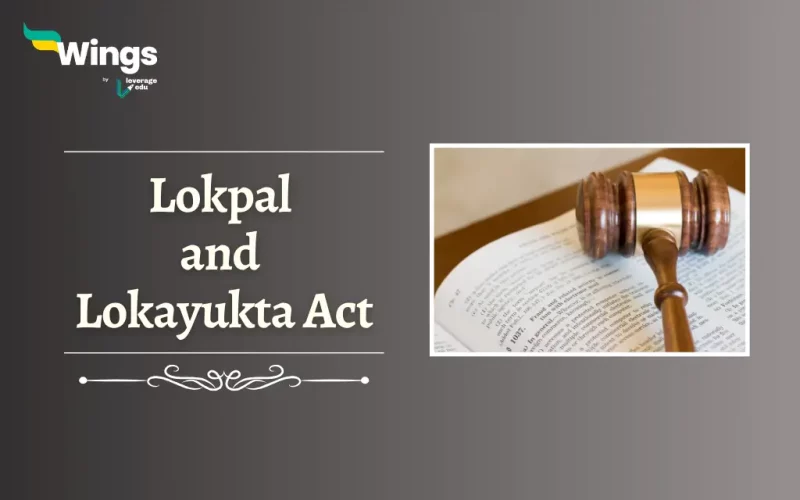Fueled by corruption, Maladministration acts like a silent termite, taking away a nation’s progress all the while bringing it down. While Anti-Corruption agencies exist, their lack of independence and real power makes them an addition to the list of problems. Furthermore, mere Advisory bodies’ recommendations are often ignored, and internal transparency must be made available. Therefore leaving no effective checks on their functioning. Hence, this is when the Lokpal and Lokayukta Act was brought about. We will cover every major aspect of the Lokpal and Lokayukta Act, so scroll up!
Also Read: What is Judicial Review in India?
Lokpal and Lokayukta Act
The Lokpal and Lokayukta Act was established in 2013. However, it commenced on the 16th of January, 2014.
- Consequently, Lokpal works at the Central level and Lokayukta works at the State level.
- Additionally, their work is to keep a check against corruption and maladministration at their respective levels.
- Unlike Constitutional bodies, these anti-corruption agencies are established by law and are Statutory bodies.
- Moreover, they act as a neutral third party (ombudsman) investigating allegations of corruption against public officials and handling related issues.
Also Read: No Confidence Motion: Definition, Procedure
Fundamental Provisions of Lokpal and Lokayukta Act
In addition, here are the Fundamental Provisions, you should know about the Lokpal and Lokayukta Act:
- Amends the Lokpal and Lokayukta Act: This act strengthens the original anti-corruption framework, making it even better in present-day situations.
- Changes in asset declaration rules: Public servants no longer have a strict 30-day deadline to declare assets and liabilities upon starting government service.
- Government determines declaration format: The central government now has the authority to prescribe the specific form and manner for public servant asset declarations.
FAQs
It is a law that creates Lokpal for the Central government and Lokayuktas for States to investigate corruption charges against public officials.
It was passed in 2013, but the Lokpal and Lokayuktas Act officially became law in 2014.
Dr. L.M.Singhvi, in 1963 coined the term Lokpal.
Related Reads
Well with this we come to an end of Lokpal and Lokayukta Act and everything about it. We are sure you might want to dig deeper into Civics and Polity, so visit us now.
 One app for all your study abroad needs
One app for all your study abroad needs













